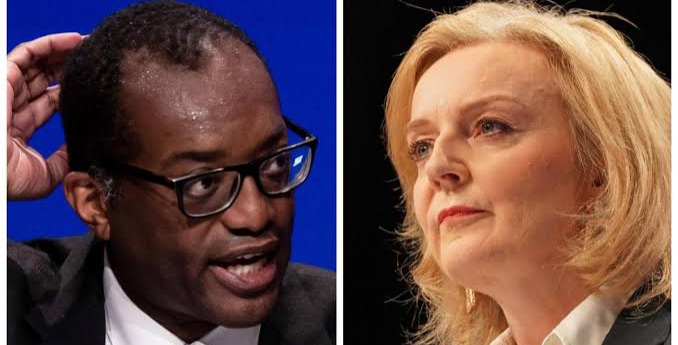By Oyintari Ben
Kwasi Kwarteng has been fired from his position as Chancellor of the Exchequer, the government’s highest financial position, by UK Prime Minister Liz Truss after just five weeks in office.
The decision was made as the United Kingdom battles the effects of Kwarteng’s mini-budget, which Truss supported and caused financial chaos, including a sharp increase in interest rates. The nation is already suffering with a cost of living issue that is harming both people and businesses, as well as skyrocketing energy prices.
When Kwarteng was abruptly called back on Friday, October 14, to learn that he had been fired, he was visiting the United States on business. As at the time of publishing this article, Truss had not yet named a successor.
Kwarteng, who was widely regarded as one of Truss’s most devoted allies, stated in his resignation letter: “You have requested me to stand aside as your Chancellor. I’ve consented.”
He also pushed Truss to stick to their budgetary goals, writing: “It is crucial now as we move forward to emphasize your government’s commitment to economic discipline.”
Truss’s position as the fourth Prime Minister (and Conservative party leader) in six years is further weakened by the decision to fire Kwarteng, which comes after a number of U-turns following the mini-budget. There are already widespread predictions in the UK that she will be ousted from office by members of her own party, and that a general election may even be called before the year is out.
Political sources believe Truss will reveal additional revisions to the mini-budget during her news conference on Friday (Oct. 14), including the tax cuts Kwarteng announced last month.




































